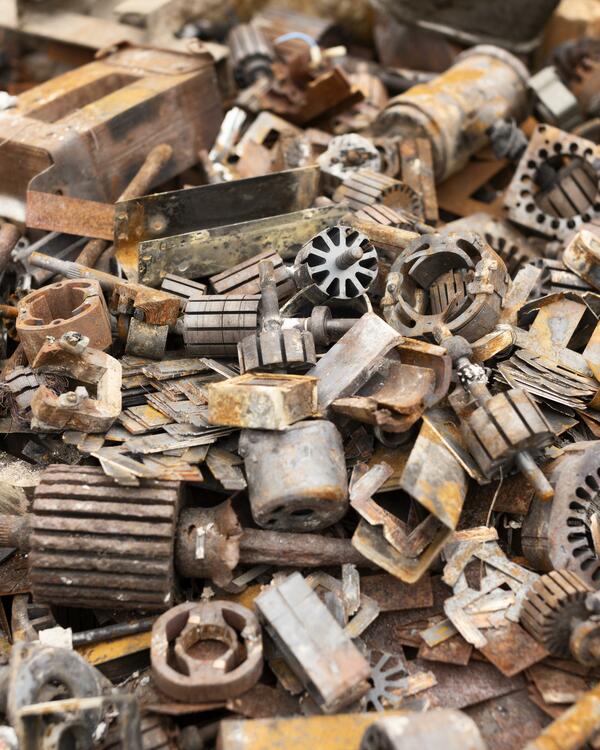Notifications
ALL BUSINESS
COMIDA
DIRECTORIES
ENTERTAINMENT
FINER THINGS
HEALTH
MARKETPLACE
MEMBER's ONLY
MONEY MATTER$
MOTIVATIONAL
NEWS & WEATHER
TECHNOLOGIA
TV NETWORKS
VIDEOS
VOTE USA 2026/2028
INVESTOR RELATIONS
COMING 2026 / 2027
ALL BUSINESS
COMIDA
DIRECTORIES
ENTERTAINMENT
FINER THINGS
HEALTH
MARKETPLACE
MEMBER's ONLY
MONEY MATTER$
MOTIVATIONAL
NEWS & WEATHER
TECHNOLOGIA
TV NETWORKS
VIDEOS
VOTE USA 2026/2028
INVESTOR RELATIONS
COMING 2026 / 2027
 Victor S. Fisher -
Jan 6 -
Other -
ferrous metal processing
-
273 views -
0 Comments -
0 Likes -
0 Reviews
Victor S. Fisher -
Jan 6 -
Other -
ferrous metal processing
-
273 views -
0 Comments -
0 Likes -
0 Reviews

Ferrous metals, which include iron and steel, are the backbone of numerous industries, from construction and manufacturing to automotive and infrastructure. Their strength, durability, and versatility make them essential materials used in the production of a wide range of products. However, with the increasing demand for sustainable practices and resource conservation, the processing of ferrous metals has become more important than ever.
Ferrous metal processing is the process by which raw ferrous materials, including scrap metal, are cleaned, refined, and transformed into reusable metal products. This process is crucial for reducing environmental impact, conserving natural resources, and contributing to a circular economy. In this blog, we will explore the different stages of ferrous metal processing, the benefits of recycling ferrous metals, and how the industry is evolving toward more sustainable and efficient practices.
Ferrous metals are metals that contain iron as their primary component. The two most common types of ferrous metals are:
Ferrous metals are used in the construction of buildings, bridges, machinery, tools, and vehicles due to their strength and relatively low cost. However, as iron and steel production involves energy-intensive processes, recycling ferrous metals has become an important aspect of achieving more sustainable manufacturing practices.
Ferrous metal processing plays a critical role in the recycling and reuse of metals. Here are several key reasons why ferrous metal processing is so important:
Recycling ferrous metals helps conserve valuable natural resources, such as iron ore and coal. By processing scrap metal instead of extracting raw materials from the earth, the need for mining and resource extraction is significantly reduced, which helps preserve the environment.
The energy required to recycle ferrous metals is far less than the energy needed to produce new metals from raw ore. For example, recycling steel uses about 60% less energy than producing new steel from iron ore. This energy conservation helps reduce carbon emissions and supports a more sustainable industrial process.
By recycling ferrous metals, we can reduce the amount of scrap metal that ends up in landfills. Metals do not degrade over time, so if they are not recycled, they can occupy valuable landfill space for hundreds of years. Ferrous metal processing ensures that metal waste is repurposed for new products rather than taking up space in landfills.
Ferrous metal processing, particularly recycling, helps lower the carbon footprint of industrial manufacturing. This is because less energy is required to process scrap metal than to extract and refine iron ore, and fewer greenhouse gas emissions are released during the process. This contributes to reducing the environmental impact of the steel and iron industries.
The recycling of ferrous metals can drive significant economic benefits. Scrap metal is a valuable commodity, and the demand for recycled ferrous metals has created a thriving market. Additionally, the processing of scrap metal supports industries that manufacture new products, thus contributing to job creation and economic growth.
Ferrous metal processing involves several stages, from the collection of scrap metal to its refinement and reuse in manufacturing new products. The following steps outline the typical process:
The first step in ferrous metal processing is the collection and sorting of scrap metal. Scrap metal can come from a variety of sources, including old machinery, vehicles, construction materials, and household items. The scrap metal is typically sorted into ferrous and non-ferrous categories, with ferrous metals containing iron and steel being separated from other materials.
Once the ferrous scrap is collected, it is cleaned to remove impurities such as dirt, oil, paint, or other substances that may contaminate the metal during processing. The cleaning process ensures that the scrap is ready for further refinement and melting.
After cleaning, the scrap metal is often shredded into smaller pieces to make it easier to handle and process. This also helps to reduce the volume of the scrap. Compaction may also be used to create dense, uniform bundles of scrap metal, making it more efficient for transportation and melting.
The cleaned and shredded ferrous metal scrap is then fed into a furnace, where it is melted down at extremely high temperatures. During the melting process, impurities such as rust or paint are removed, and the metal is refined to meet specific quality standards.
One of the most common furnaces used in ferrous metal processing is the electric arc furnace (EAF), which uses electrical energy to melt the metal. Another method is the blast furnace, which uses a combination of coke (carbon-rich fuel) and iron ore to extract molten iron. The refined molten metal is then ready for casting into new shapes.
Once the metal is melted and refined, it is cast into various shapes, including ingots, billets, and slabs, which are the raw materials for the production of new steel or iron products. The casting process is carefully controlled to ensure the desired properties of the metal, such as strength, ductility, and hardness.
The cast metal is then subjected to rolling and forming processes to create the final product. This can involve hot or cold rolling, where the metal is passed through rollers to shape it into sheets, plates, beams, or bars. Additional processing methods such as extrusion or forging may also be used to produce specific products, like pipes or rods.
Finally, the processed ferrous metal undergoes finishing processes such as coating, heat treatment, and machining to achieve the desired surface finish, hardness, or other material properties. The final product is then inspected for quality control to ensure it meets the required standards before it is shipped to manufacturers for use in new products.
The recycling of ferrous metals offers a wide range of benefits, not only for the environment but also for the economy and industry as a whole:
Recycling ferrous metals helps conserve natural resources like iron ore, coal, and limestone, which are required for traditional metal production. By reusing scrap metal, the demand for raw materials is reduced, helping preserve these finite resources.
Recycling ferrous metals uses significantly less energy compared to the extraction and refinement of virgin metal. This translates into lower operating costs for manufacturers and a reduced environmental footprint.
Ferrous metal processing through recycling reduces the need for mining, which can cause habitat destruction, air pollution, and water contamination. By recycling scrap metal, we minimize these environmental risks and contribute to a cleaner, more sustainable industry.
The recycling of ferrous metals creates jobs and supports the economy by providing raw materials for manufacturing. Scrap metal collection, processing, and recycling are all part of a multi-billion-dollar industry that contributes to job creation, technological innovation, and business growth.
Recycling ferrous metals results in fewer greenhouse gas emissions, as the energy-intensive processes associated with mining and refining are bypassed. This helps reduce the overall carbon footprint of the steel and iron industries, contributing to global efforts to combat climate change.
Ferrous metal processing is a vital part of the recycling and manufacturing industries. By transforming scrap metal into valuable raw materials for new products, ferrous metal processing helps conserve resources, save energy, reduce waste, and promote sustainability. As the demand for greener practices in the industrial sector grows, ferrous metal recycling will continue to play a key role in reducing environmental impact and driving economic benefits.
For manufacturers, contractors, and industries involved in construction or manufacturing, embracing ferrous metal recycling offers a sustainable, cost-effective solution for meeting material needs while supporting a healthier planet. By processing scrap metal efficiently, we can contribute to a circular economy where metals are reused, recycled, and repurposed for the future.
